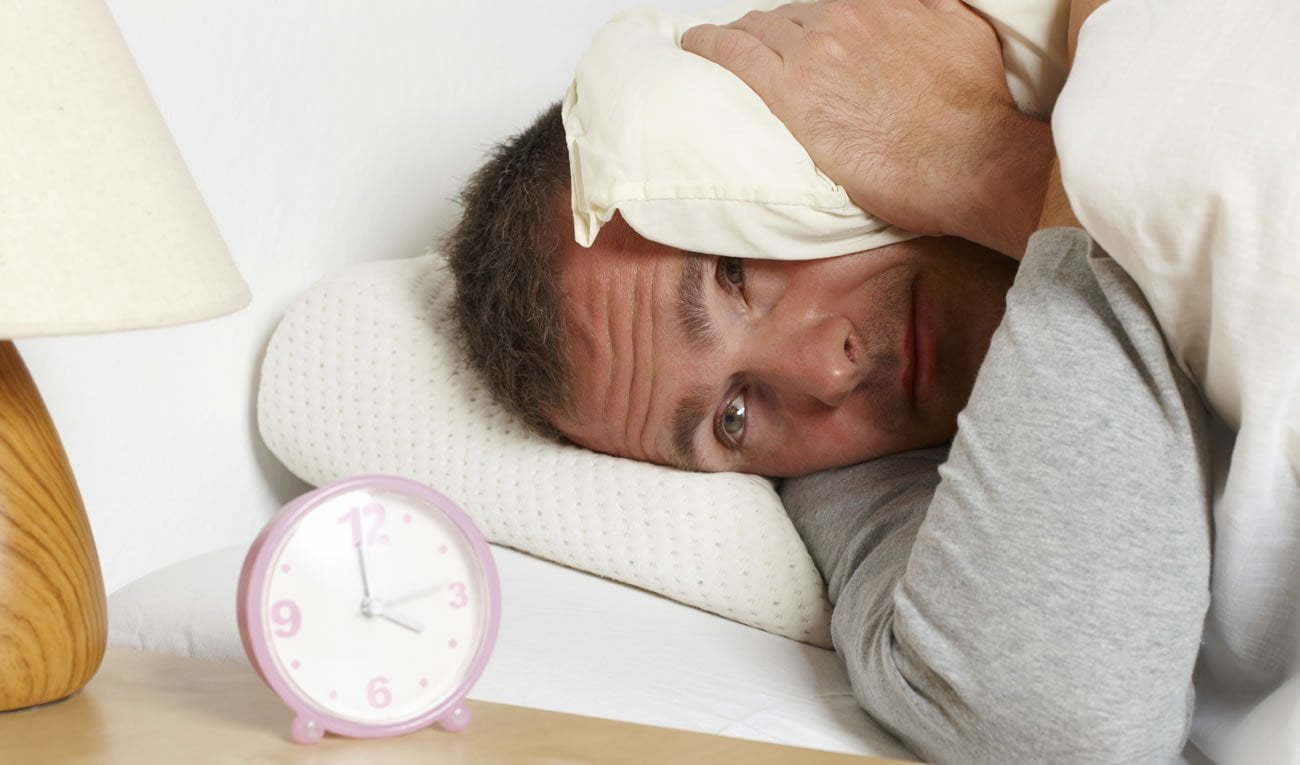Sleep Disorders and Weight Gain | What To Do
What many people don’t realize is that sleep disorders and obesity go hand-in-hand. And it’s a Catch-22. Excess weight can cause problems, like sleep apnea, which rob you of sleep, but it’s difficult to lose weight if you’re sleep deprived. But, fortunately, there are solutions.

While reviewing stacks of medical records from incoming guests several years ago, the physicians at the Pritikin Longevity Center noticed something peculiar.
A whopping 80% of guests reported that they had trouble getting a good night’s sleep. Not surprisingly, many also complained of problems caused by sleep loss, such as daytime fatigue, irritability, headaches, and foggy thinking.
Many were also overweight.
If you don’t sleep well, you can’t get well.
And being sleep-deprived can make it difficult to shed excess weight.
Sleep Disorders and Weight Gain
More and more research is finding that sleep disorders and weight gain go hand-in-hand.
In one study1 published in the International Journal of Obesity, for example, scientists from the University of Helsinki found that among 5,700 middle-aged women, those who struggled with sleep disorders were significantly more likely to struggle with their weight than their peers who got the recommended eight hours a night.
Concluded the authors: “Sleep problems likely contribute to weight gain. To prevent major weight gain and obesity, sleep problems need to be taken into account.”
In another study2 at the University of Colorado Boulder, Dr. Kenneth Wright and colleagues found that men who were forced to sleep only five hours a night put on two pounds within one week.
Explained Dr. Wright: “Just getting less sleep, by itself, is not going to lead to weight gain. But when people get insufficient sleep, it leads them to eat more than they actually need.”
Newly published research has also learned that the quality of our diets affects sleep. When we eat a healthy diet during the day, we sleep better at night. The converse is true: poor diets lead to poor sleep.
Hormonal Havoc
Exactly how lack of sleep affects our ability to control weight has a lot to do with our hormones.
-
Ghrelin
Two key hormones involved are ghrelin and leptin. Ghrelin is a “go” hormone. It tells us to GO EAT. When we are sleep-deprived, research3 has discovered, our bodies produce more ghrelin.
-
Leptin
Another hormone, leptin, is a “stop” hormone. It tells us that we’re full and satisfied, and that we can STOP EATING. When we’re sleep-deprived, we make less leptin.
Summing up: More ghrelin and less leptin equals weight gain.
And weight gain, unfortunately, can lead to another sleep disorder, called sleep apnea, which robs us of even more sleep, which can lead to even more weight gain.
-
Insulin
Another hormone affected by sleep disorders is insulin, research4 is learning. When we don’t sleep well, our cells resist, or block, insulin’s efforts to ferry glucose into our cells. Yes, it’s as if sleep deprivation is making us diabetic.
There’s more bad news. Insulin promotes the release of leptin, the “stop eating” hormone, so when we’re sleep deprived and our cells are rejecting insulin, our bodies make less leptin, which means more eating, and more weight gain.
Better Hormones, Better Weight Loss
The good news is that getting back to a good night’s sleep can help calm hormonal disturbances. No longer is your body fighting against you. Losing weight gets easier.
Plus, a good night’s sleep lessens fatigue, so you’re more likely to exercise, which certainly promotes weight loss.
Sleep Apnea
People don’t sleep well for several reasons, including restless leg syndrome and menopausal hot flashes, but the most serious chronic problem, posing the greatest risk, is sleep apnea.
What’s heartening is that sleep programs can control the symptoms of sleep apnea very quickly – often in 48 hours. Patients tell their physicians that their lives have changed immeasurably. They’re well rested. They can think clearly and feel much better.
If you have sleep apnea, you literally stop breathing during sleep for anywhere from 15 seconds to more than a minute – and it can happen dozens of times in one night. Each time, you emit a gasping, explosive sound as you struggle to recover, often unaware you’re doing it.
Chances are, your bedmate is well aware of these episodes, and fears you may never recover. Sleep apnea is a leading cause of right heart failure and sudden death in the U.S.
Neck Size Greater Than 17.5 Inches
The sleep disorder happens because the soft tissues of the mouth and palate fall back, temporarily blocking the breathing passages. A major risk factor for sleep apnea is excess weight. One of the simplest predictors of sleep apnea is a neck size greater than 17.5 inches.
Other risk factors for sleep apnea include: having a small upper airway (or large tongue, tonsils, or uvula); having a recessed chin, small jaw, or a large overbite; smoking and alcohol use; and being age 40 or older. Also, sleep apnea appears to run in some families, suggesting a possible genetic basis.
Getting Thinner
While there are many approaches to dealing with the problem, including surgery, the real treatment for sleep apnea is a sensible, science-based, healthy living plan because it promotes long-term weight loss. As soon as someone lose 10 to 15% of excess body weight, their sleep apnea tends to improve. Sometimes, it even disappears.
But shedding pounds takes time, and sleep deprivation hampers weight-loss efforts. Sleeping well, people’s chances of losing weight improve substantially.
Sources
- 1 International Journal of Obesity, 2011; 35: 109.
- 2 Proceedings of the National Academy of Sciences, USA, 2013, 110 (14): 5695.
- 3 PLoS Medicine, 2004, Dec; 1(3): e62.
- 4 Pediatric Neuroendocrinology. Endocr Dev. Basel, Karger, 2010, 17: 11.